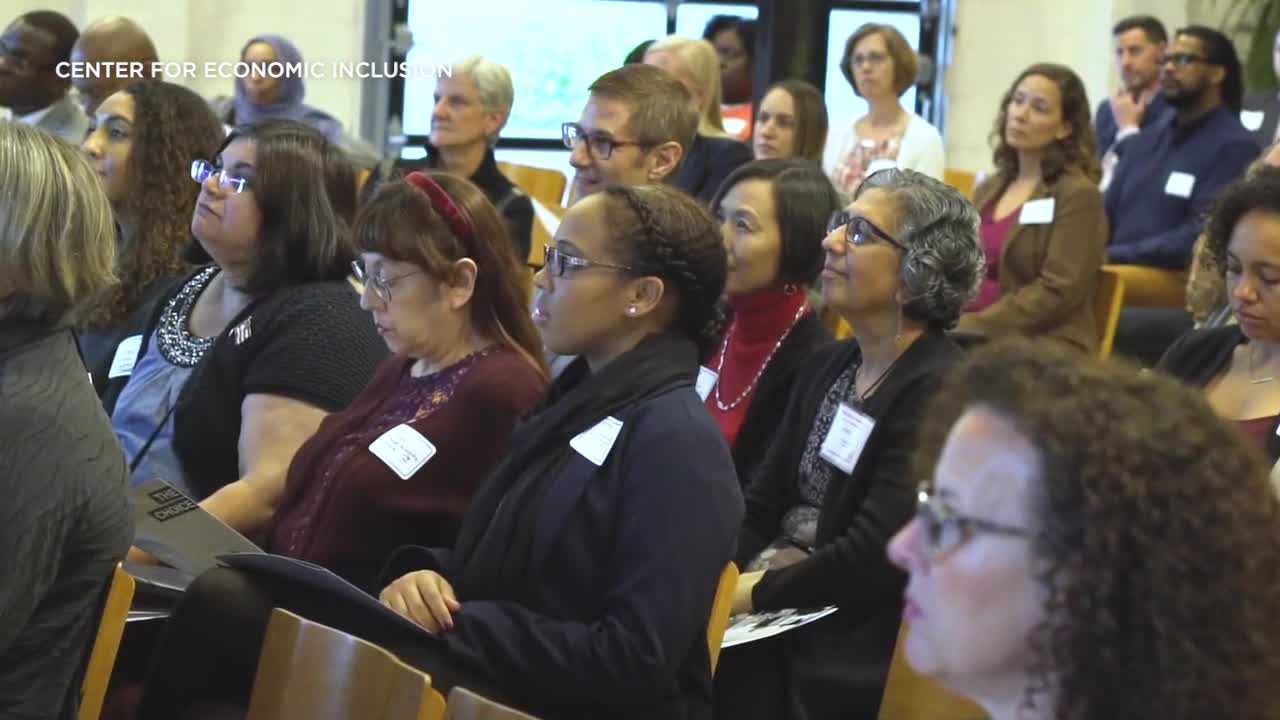Twin Cities organization helps Minnesota businesses become more equitable
A Twin Cities organization is hoping to hold more Minnesota businesses accountable by using a racial equity tool to measure diversity and inclusion.
After the death of George Floyd, the world watched as a wave of businesses pledged to be more diverse and inclusive.
Now, the Center for Economic Inclusion in the Twin Cities is holding them accountable.
“More companies are wanting to be sure that they’re not just giving lip service to racial equity and inclusion, but they have the actions and the results to show for it,” Tawanna Black, Center for Economic Inclusion founder, said.
The Racial Equity Dividends Index was created in 2022 by the organization to help businesses become more equitable.

Businesses take the assessment to measure how inclusive and diverse their company actually is.
They’re scored in 43 different racial equity standards across seven categories including hiring, leadership and public policy.
“This is about giving you the tools and the knowledge needed to then go back in and transform your company,” Black said.
The center will then guide the businesses who take the assessment through a journey to find equitable solutions to put into practice.
40 companies completed the assessment last year.
According to the results, 33% of those companies identified racial equity as a public policy priority.
“It takes people who not just are committed to saying we want it to be different, but we’re willing to do the work,” Black said.
3M is one of the corporations in Minnesota that took the racial equity assessment last year and pledged to make equitable changes within their company.
“We are always on the journey to do better,” Garfield Bowen, 3M Social and Environmental Justice vice president, said. “We have a responsibility to leverage our full capabilities to do right by our people in our company, but also in our communities.”
The company scored high in racial equity leadership, culture, retention, advancement, and philanthropy and investments.
Bowen said the scores were low in the policy and advocacy categories so they immediately rolled out solutions to improve.
“Over the last year, we deepened our engagement with the Minnesota Business Coalition for racial equity and signed on to the recent Crown Act,” Bowen said.
Bowen explained they’re also increasing efforts to buy products from more suppliers of color.
“It feels amazing. We can’t celebrate and stop. We’ve got to celebrate and keep pushing forward,” Bowen said.
Black explained she’s hopeful that businesses will make equitable strides in their organizations to work toward a more diverse and inclusive future.
“It’s all but magical to be able to see the transformation and to walk alongside people where you can see what happens when you give people the grace and the space to learn,” Black said.
Both large and small businesses and non profits can sign up to take the assessment until March 10.
The goal is to get over 100 companies across the state to sign up this year.